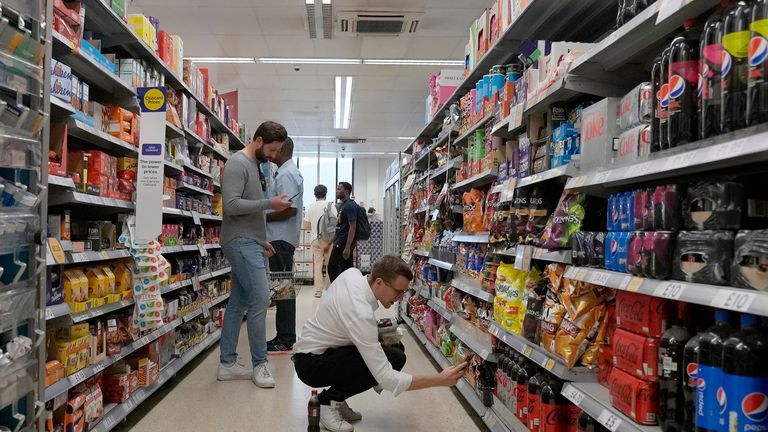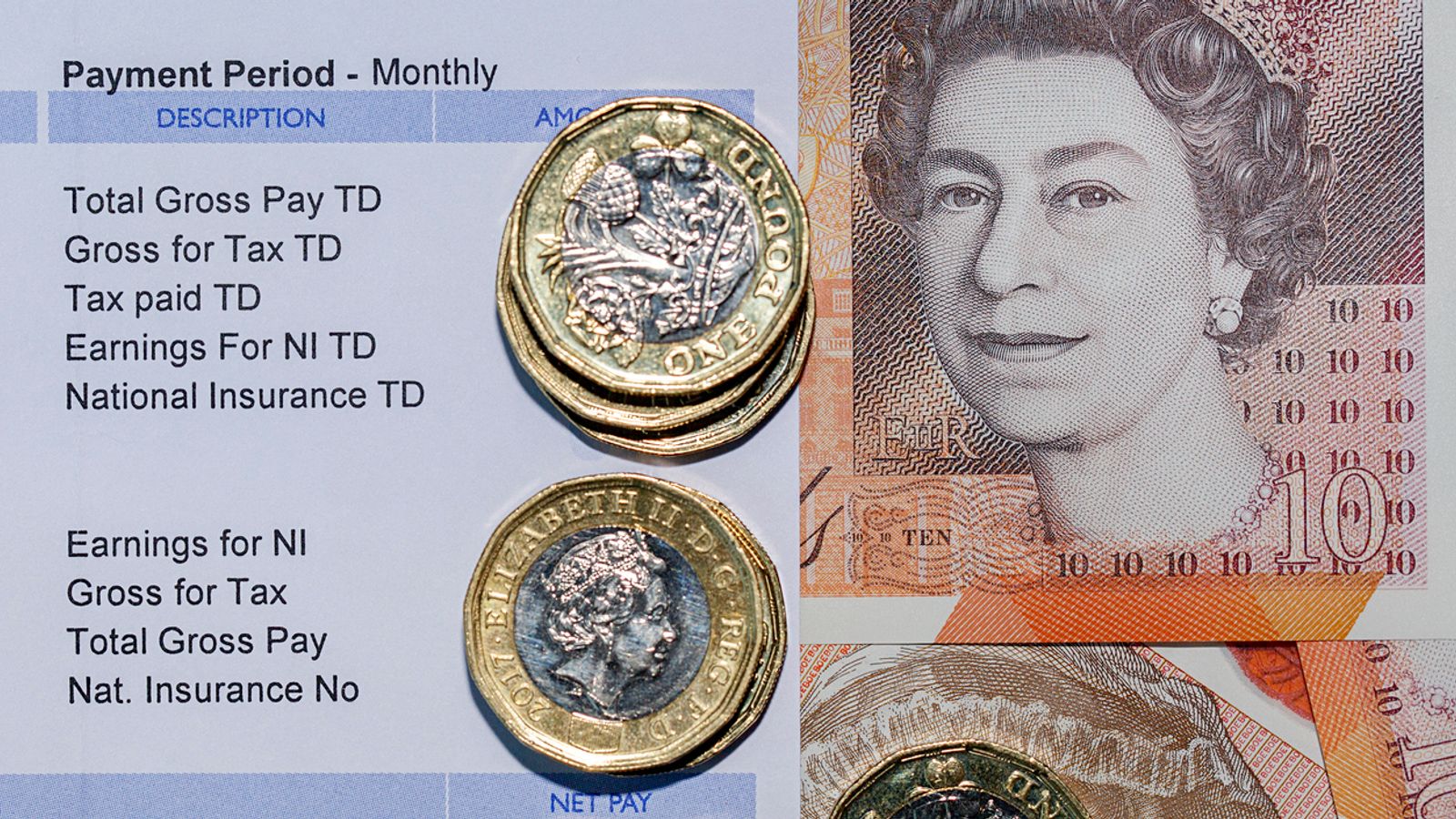
The pace of wage growth has eased back by more than expected, according to official figures that will please interest rate-setters at the Bank of England.
The Office for National Statistics (ONS) reported basic pay was 7.3% higher in the three months to October compared to the same period last year.
That was down from an upwardly revised level of 7.8% reported last month – the fastest drop since the end of 2021 but it took real wages, when inflation is taken into account, to their highest level in two years.
The wider ONS figures showed unemployment remained unchanged at 4.2% over the same three month period.
ONS director of economic statistics Darren Morgan said: “Our labour market figures continue to show a largely unchanged picture, with the proportions of people who are employed, unemployed or who are neither working nor looking for a job all little changed on the previous quarter.
“Job vacancies fell again. This is now the longest period of decline on record, longer than in the immediate aftermath of the 2008 downturn.
“Nevertheless, the number of vacancies still remains well above its pre-pandemic level.
“While annual growth in earnings remains high in cash terms, there are some signs that wage pressure might be easing overall. However, as inflation has been falling more quickly, pay continues to grow in real terms.”
It is the trend that the Bank of England will focus on as it seeks cooling wage growth to help inflation come down towards its 2% target.
Rate-setters are fiercely opposed to the idea of rate cuts in the short term to help inject growth into the country’s flatlining economy.
It argues inflation remains too high, at 4.6%, despite the slowdown from its peak above 11%.
Financial markets have, in recent weeks, adjusted expectations for a rate cut to the second half of 2024.
The Bank will want to see the pace of wage growth ease back substantially to help tackle the pace of price increases.
It is worried higher levels of pay will only fan the flames of inflation by stoking demand in the economy.
To that end, a report by the Resolution Foundation released earlier on Tuesday suggested the projected easing in inflation would drive smaller wage increases in 2024.
It added falling job vacancy rates would also help.
The Bank’s latest thinking will be revealed on Thursday when the monetary policy committee makes its latest interest rate decision.
It is widely tipped to hold Bank rate at 5.25% for the third consecutive meeting, meaning there is no prospect of an immediate and meaningful fall in borrowing costs being passed on by lenders.
But the minutes, and voting, will be closely scrutinised for any evidence of a softening towards rate cuts.
This breaking news story is being updated and more details will be published shortly.
Please refresh the page for the fullest version.
You can receive Breaking News alerts on a smartphone or tablet via the Sky News App. You can also follow @SkyNews on X or subscribe to our YouTube channel to keep up with the latest news.







